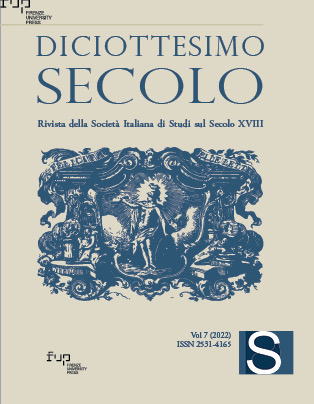On reading the Histoire des deux Indes (1780) by Raynal and Diderot: exploring tensions between European expansion and Enlightenment values
Published 2022-11-18
Keywords
- Raynal,
- Diderot,
- Histoire des deux Indes,
- Slavery,
- Radical Enlightenment
How to Cite
Abstract
This contribution will engage with a key question concerning the Histoire des deux Indes (1780) by Raynal and Diderot, viz. What can the ideas and the writings of these two philosophes still teach us today? In our discussion we will focus first on Raynal’s Histoire and its 18th-century Europeans, their commerce and colonies outside Europe, with special attention to what at the time was almost a paradigm case: the global maritime merchant empire of the Dutch. Secondly, we will consider what Diderot’s many contributions have added to the Histoire’s power and impact, especially his critique of European colonial, commercial and civilisational endeavour around the world. At the time, as Diderot and Raynal gave voice to the discontents arising from the ongoing global expansion of Europe, their Histoire – as Jonathan Israel has shown in his magnum opus – became a major vehicle for the dissemination of their Radical Enlightenment. The question that will concern us here is the one posed by Anthony Pagden: What relevance do those radical ideas still have in our postcolonial and globalised world of today, where the former colonial empires and their peoples are today writing back themselves, clamouring to be heard?


